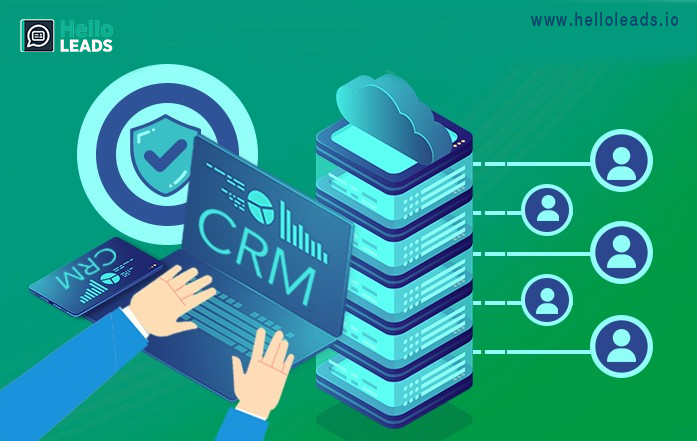
Customers are a crucial part of any business. Without adding or retaining customers, you can’t expect any sales or growth in your revenue. A time-tested key to success in business is to provide positive customer experience. Hence, investing in flawless customer service software/tools is critical to long-term business success. This is where customer relationship management (CRM) gains importance. A CRM helps you to manage all your interactions with each customer and also helps you to strengthen your relationship with them through integrated communication and being in a constant engagement mode.
Earlier, all CRM systems were deployed On-Premise and ran on servers within an organization. These were termed as On-Premise CRMs. However, over the last few years, CRM systems are available as a cloud-based solution where the application programs and data reside on the CRM provider’s servers and accessed via internet connectivity through web browsers and mobile applications.
Cloud CRM also known as Software-as-a-Service (SaaS) CRM, can be accessed from any device, enabling users to access the same information at the same time.
In this business guide for small and medium businesses, we will walk you through what is a cloud CRM, its benefits, and Top 3 cloud-based CRM software.
What is a cloud CRM?
Any customer relationship management system, where all the tools, software program, and data resides in the cloud and if the solution is delivered to end-users through the internet connectivity, is termed as a Cloud CRM. A cloud CRM is a software that is hosted in the cloud and can be accessed via internet.
The key benefits of adopting a cloud CRM
1.Hassle-free installation
One of the main reason’s businesses hesitate to try a CRM is due to the complexity involved in the architecture and the fear of high investment and delays in implementation. On the other hand, installing a cloud CRM is very easy and quick because it requires only an internet connection. There is no hardware involved, and you don’t have to set up your own servers and most importantly there is zero maintenance cost as these are subscription fee-based services.
2.Access from anywhere
Cloud CRM is mobile-friendly and the data in the CRM can be accessed anywhere and at any time, even while you are on the go, provided you have a good internet connection. Cloud CRM is a better option when you’re working remotely.
3.Easy to use
Using a cloud-based CRM for small businesses is easier than ever. Most of the cloud-based CRM tools have got an intuitive application interface and a smoother onboarding experience. As the solutions are easy to use and adopt, the rate of acceptance of a Cloud-based CRM by your sales team is always higher.
4.Integrations with other apps

Cloud-based CRM integrates well with most of the popular programs, tools and software which you already use. It helps you to save time and money in the long-term perspective. Make sure you choose a CRM platform which provides API based integration capabilities and is fully compatible to handle your current business operations.
5.Inexpensive upgrades

When your CRM software needs an upgrade, you only have to download the latest version. When a business uses a cloud CRM, upgrading generally requires very little effort and also saves a lot of money and time.
6.Enhanced security
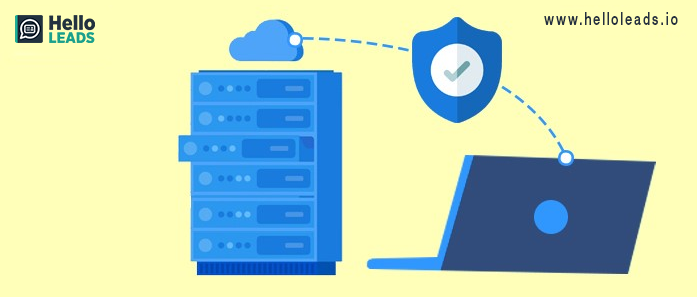
Your data is confidential and of paramount importance to your business. Hence, data security is the top most concern and priority while evaluating any CRM software. Before choosing a CRM software, ensure that the right security measures, data encryption and backup exist to protect your data.
Top 3 cloud CRM
1.HelloLeads
HelloLeads is a simple and smart lead management CRM tool that helps SMEs in lead capturing, lead tracking, and lead management. The solution is both cloud-based and mobile-driven. The platform specializes in managing lead information and scheduling sales follow-ups. HelloLeads helps sales teams in improving conversion rates by providing deeper insights on prospects, driving rapid lead response, and improving selling discipline.
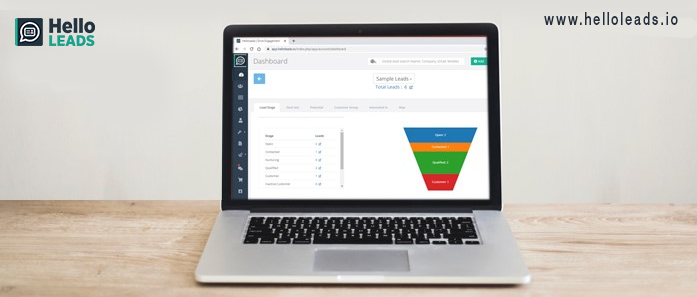
With HelloLeads, you can have a complete track of conversation history with your leads or customers. You can also track your sales team’s performance using its real-time reports in Android and Web applications. You can also track whether daily sales happened or not and identify which of your sales team members are in connect with leads. You can also find who is performing well on a daily basis.
Because of its simplicity, ease of use, and affordability, HelloLeads CRM is the best fit for small and mid-sized companies.
2.HubSpot CRM

HubSpot CRM is one of the most popular tools from HubSpot. It is a powerful sales CRM tool that helps you to increase leads, accelerate sales and streamline customer service.
With HubSpot, you can automatically log sales activities and track deals as leads make their way through the pipeline.
It offers integrations with many third-party software including Microsoft Dynamics, Salesforce, Shopify, Zapier and many others.
3.Zoho
Zoho CRM is a sales CRM platform that provides lead and contact management, purchase control, sales pipeline management, sales force automation, etc. These tools are perfect for small companies as well as medium-sized companies.
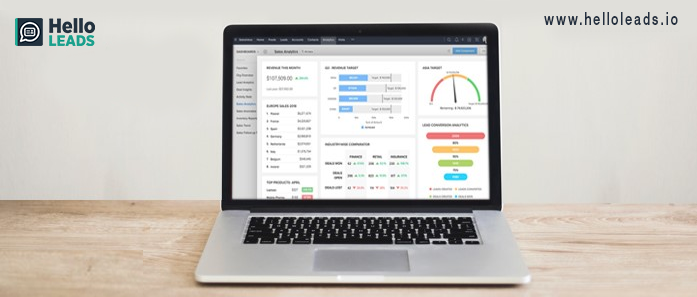
Zoho CRM can automate your daily sales activities, track sales, and engage customers on different platforms. Zoho CRM also supports integration with popular applications like Microsoft Outlook, MailChimp, QuickBooks and Google Apps.
To summarize, cloud-based CRM platforms enable companies to provide excellent customer experience. A cloud-based CRM also helps you to have instant access to real-time insights of your sales opportunities, automate your task management processes and centralize your customer database.
Make sure to choose a cloud-based CRM that best suits your business needs.
Share this blog :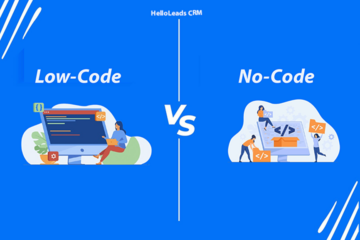











mobile CRM, you can track your team’s daily and weekly performance without being physically present at work.